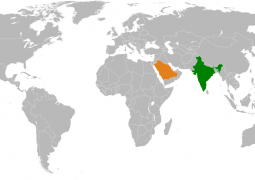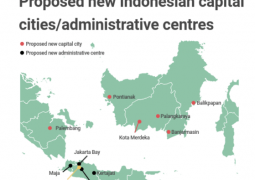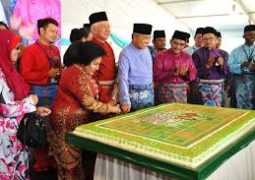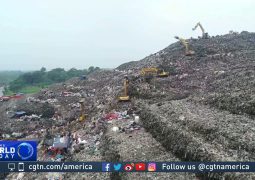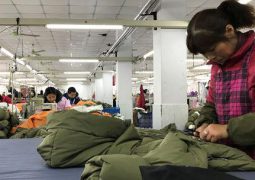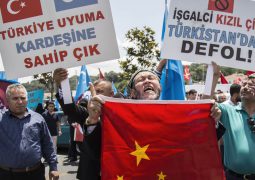How to Deal With Trump — Reassurance From a Chinese Think Tank
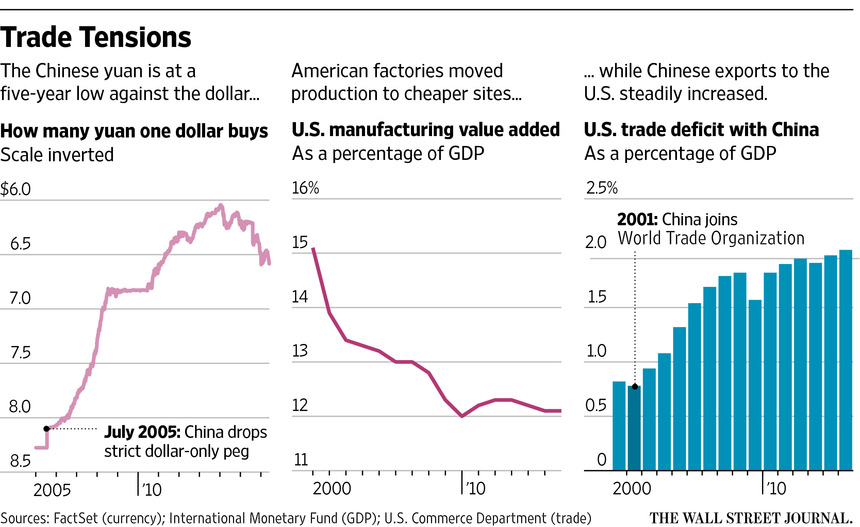
On the eve of Donald Trump’s inauguration, one Chinese think tank had some advice for Beijing on how to engage with the next U.S. president: Don’t expect the worst.
While Mr. Trump has threatened stiff tariffs and talked tough on Taiwan, a report released Thursday from the Beijing-based Center for China and Globalization says that harsh rhetoric about China is de rigueur for U.S. presidential candidates. Once Mr. Trump takes office, the report argues, there are many aspects underpinning the relationship between the world’s two biggest economies that should help keep it on an even keel.
In 2015, for example, for the first time Chinese foreign direct investment in the U.S. surpassed the amount of U.S. foreign investment in China. Hundreds of thousands of Chinese students in the U.S. are a key source of income for cash-strapped schools.
“There’s uncertainty, but uncertainty could also be good,” says Wang Huiyao, the think tank’s president. He says he believes some of Mr. Trump’s more-aggressive pledges, such as 45% tariffs on Chinese goods, might just be bluster.
“He’s a businessman, he could be turned around if there are enough interests. His cabinet is full of businessmen,” he says.
The report also suggests that China’s experience with large-scale infrastructure plans could help it play a role in Mr. Trump’s efforts to “Make America Great Again.” Some Chinese investors have already expressed interest in participating.
Mr. Wang said the “hawkish” tone adopted by previous U.S. president hopefuls hasn’t held up when faced with the realities of the office. For example, he said, while Bill Clinton spoke volubly about human rights and China early in his tenure, such talk largely evaporated once he had spent more time in the White House.
The meeting between Mr. Trump and Jack Ma, founder of Chinese e-commerce giant Alibaba, was also encouraging, Mr. Wang said. “It shows he’s changeable,” he said. “If China can help them to invest in the U.S. and create new jobs, help with infrastructure — well that’s his bottom line, to create jobs, right?”
In an interview last week with The Wall Street Journal, Mr. Trump walked back an earlier pledge to label China a currency manipulator “on day one of a Trump administration.”
The think tank’s report advises Beijing to try to cultivate more diplomatic relationships directly with U.S. states and promote more cultural and research exchanges. It also suggests working with U.S. multinational corporations in an attempt to smooth ties. (That may take some work: Four out of five U.S. companies say they feel less welcome in China than before, according to a survey this week.)
For others in China, the inauguration is an opportunity to crack jokes regarding the man some here refer to as a consummate tuhao, a Chinese term that roughly translates as the crass or uncouth wealthy. In the lead-up to Mr. Trump’s swearing-in, Chinese media circulated stories speculating as to whether his inauguration would end up being the most expensive in U.S. history.
“After Trump takes office, when the price of gold goes up, one reason will be: The White House will be totally decorated in it,” wrote one user on the Weibo social-media platform.
“Will this changeable, crafty tuhao really make America great again? Or will he just turn America into a peddler going around haggling over this and that? We’ll have to wait and see,” wrote another.
Recent confirmation hearings for Mr. Trump’s cabinet picks have seen nominees offer up sharp criticism of China, with Mr. Trump’s pick for commerce secretary, Wilbur Ross, on Wednesday saying it was the “most protectionist” of big countries. On Thursday, China’s Ministry of Foreign Affairs responded by citing Chinese President Xi Jinping’s speech this week in Davos, Switzerland, in which he argued vigorously in favor of globalization.
“Who is really pushing forward liberalization of trade and investment?” said ministry spokeswoman Hua Chunying. “I think everybody sees very clearly that the answer is the opposite [of what Mr. Ross said].”
–Te-Ping Chen. Follow her on Twitter @tepingchen.
- Previous Kazakhstan: China-Focused Dating Agency Sparks Anger
- Next Taiwan Fears Becoming a Pawn in Donald Trump’s Game



